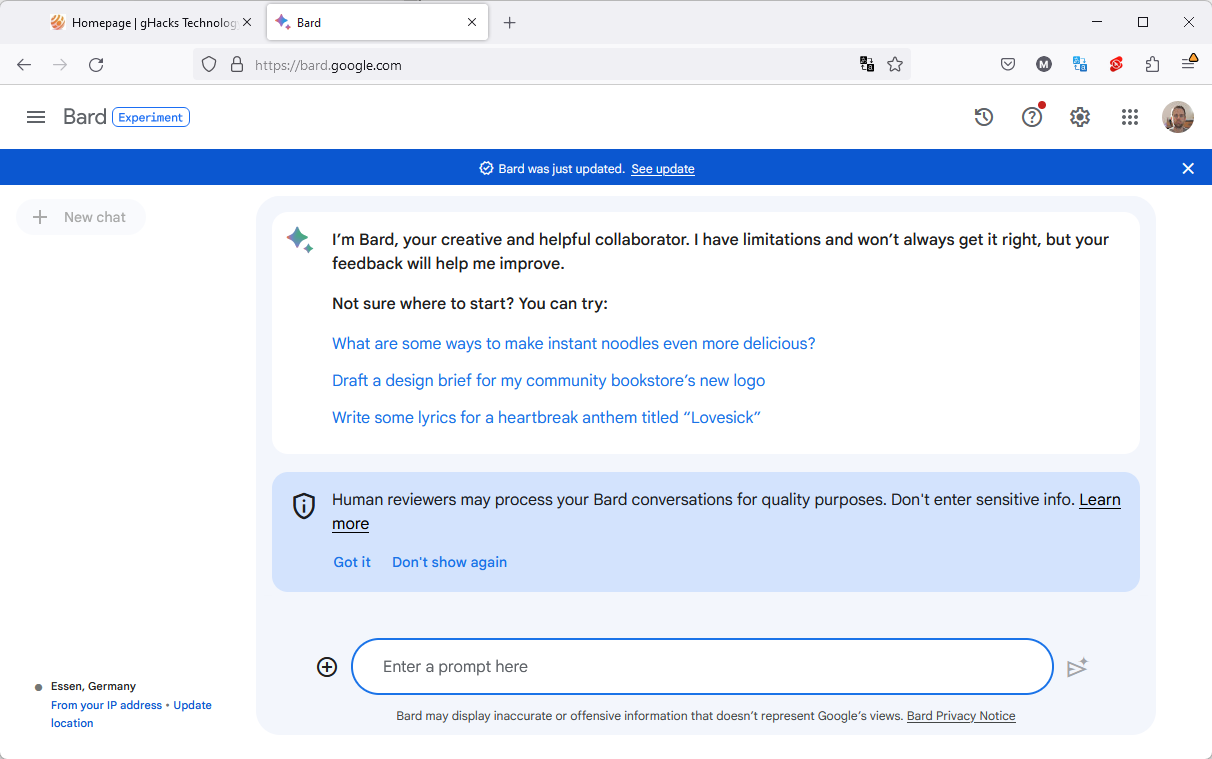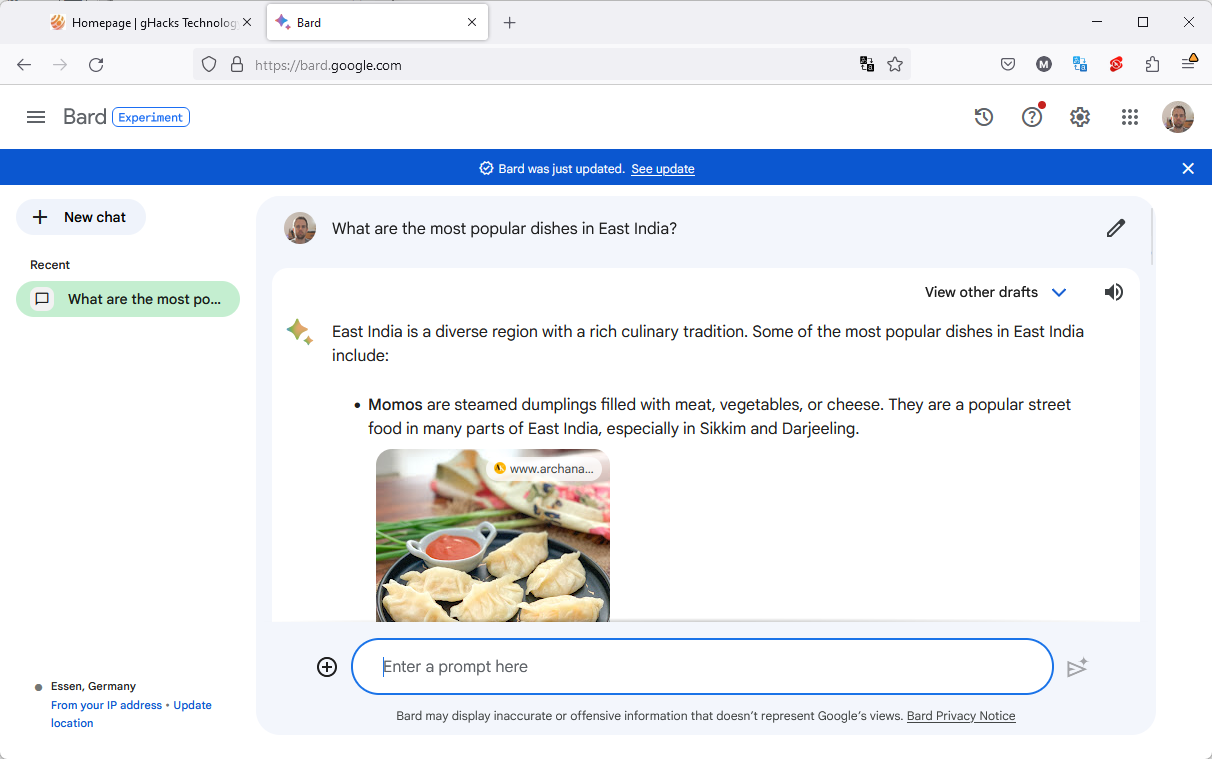When Google launched Google Bard, its answer to ChatGPT and Bing Chat, it blocked access to Bard in several countries and regions. European users for one could not use Google Bard, unless they used a VPN service or other means to change their country of origin.
Google did not provide the Irish Data Protection Commission with information regarding privacy and this prevented the launch of Bard in the European Union.
Today, Google announced the launch of Bard in countries of the European Union and in Brazil. Google states that it has "proactively engaged with experts, policymakers and privacy regulators on this expansion".
Users from Brazil and the European Union may now visit the Bard website in any modern browser to use the AI. A Google account is required, but there is no waitlist anymore, as Google dropped it in May 2023.

Besides launching Google Bard in the European Union and Brazil officially, Google announced today that Bard is now capable of communicating in more than 40 languages. Besides English, which was supported from the get-go, users may now also use Spanish, Arabic, German, Chinese, Hindi and many other languages to communicate with the AI.

Google has updated Bard's capabilities next to that. Here is what is new:
- Bard users may now listen to the responses that the AI gives. To do so, select the sound icon that is displayed next to answers that Bard gives. Google notes that this may be especially useful to "hear the correct pronunciation".
- Bard's responses may now be modified. The new option enables users to change the length of the response and the tone of it. Options include shorter and longer, but also professional and simpler. This feature is only available in English, but Google promises to add support for other languages soon.
- The option to pin conversations has been added. This allows users to revisit conversations at any time by selecting them again from the pinned listing in the interface.
- Code exporting has been improved by adding the ability to export Python code to Replit in addition to Google Colab.
- Bard responses can be shared using links now, so that contacts, friends and family members may read the response.
- Images may be uploaded to Bard now to get the analyzed. The feature is only available in English.
Google notes that reviewers may read user prompts and responses to them. It is asking users not to reveal sensitive information to Bard.
Closing Words
Google increased the reach of Bard significantly with the launch in the European Union and in Brazil. The new features expand the AI's capabilities, but some are language-limited.
Now You: have you tried Bard? What is your impression so far?
Thank you for being a Ghacks reader. The post Google Bard is finally available in Europe and Brazil appeared first on gHacks Technology News.


0 Commentaires